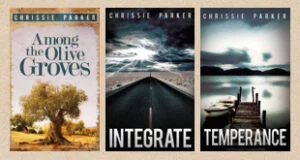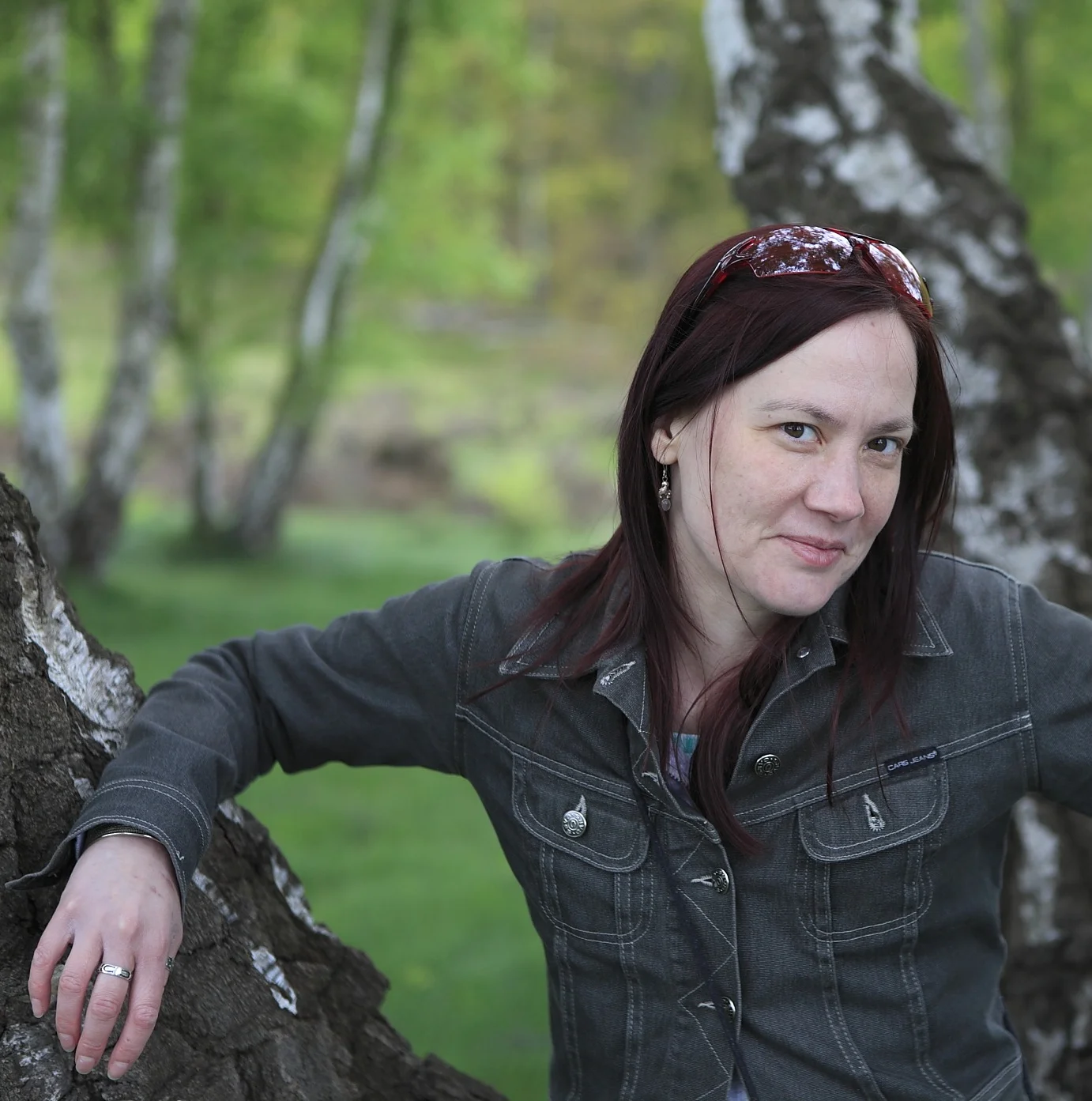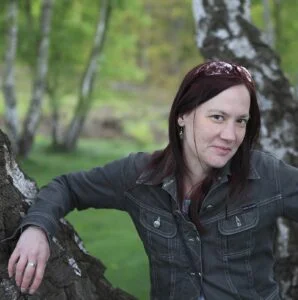Indie author Chrissie Parker
As part of our occasional #WritersWednesday series on writing with particular health conditions, British novelist Chrissie Parker's describes the challenges of writing with epilepsy. Her positive attitude will inspire authors everywhere.
The life of a writer can be very rewarding but it’s also hard. Motivation, a thick skin and determination are all strengths required. I have all of these to varying degrees, although it isn’t always easy. My writing life is a little different to the norm. Whilst many writers I know wake in the morning, put the coffee on and rush to their desks prepared to put in a ten, sometimes twelve-hour day, mine starts very differently.
Essential Routine
When I wake up, the first thing I do is take my medication. I then eat breakfast. If I don’t, I’ll feel rough for the day, as if I have a bad hangover, coupled with no energy and a feeling of sluggishness. Once I have eaten, I then gauge how much energy I have for the day ahead, both mentally and physically for work. I have to see if it will be enough to get me through the day.
An Invisible Illness
I have epilepsy, a condition that affects people in different ways. It's an unseen condition that I’ve lived with for decades. Even though I’m currently seizure free, I still have to take medication three times a day, I have to eat three times a day, and I have to get between eight and ten hours sleep a night. My energy, both physical and mental, gets used up a lot quicker than the normal person. A late night, too much physical exertion, or stress impacts me and leaves me feeling overtired. All of this means I can't just work through lunch or pull an all-nighter. My day needs to be structured around my condition to ensure I stay healthy. This means my ability to function changes from day to day. Some days are good and I can work a reasonable number of hours and get lots achieved, other days I’m tired, my brain fogs over and I only work for a few hours.
More than Just Writing
As a writer, there’s more to writing a book than just writing. There are edits/revisions, marketing, answering emails and keeping social media updated. There are schedules to plan, events to prepare for/attend, and other numerous tasks. It’s more than a full time job, and there’s no one else to do it but me.
This is where frustration sets in. I see other writers working fourteen-hour days, six-day weeks. They release multiple books per year; at the moment I only release one a year. I look at them and think, why can't I do that, why can't my body and brain just understand that I need more energy, why can’t I find the energy from somewhere – anywhere – so that I can do what I want to do?
I want my condition to stop dictating to me. I don’t like dealing with the unpredictability.
But then I remember my epilepsy is part of me. It is me.

Chrissie Parker's first three novels
I've had it for a long time and I’m better than I was ten years ago, I’ve been seizure free since July 2009 and feel the best I’ve felt in along time. I may not be releasing multiple books a year, but I’m still releasing one a year. I’m still marketing, I’m still attending events, and I still have my loyal readers, respond to them and keep them updated with all my news. I have to learn to stop getting frustrated. I have to realise I can't do it all, I'm not superhuman; I’m me, that’s just how it is.
I have epilepsy, and that's what makes me who I am, and as long as I'm still writing that's all that really matters.
OVER TO YOU If you'd like to share the challenges of writing with a health condition, we'd love to hear from you.
RELATED POSTS
- How Illness Turned Me into an Author by Nelly Harper
- How Self-publishing Saved my Life by Paul Tomkins
- Feel the Fear and Write It Anyway by Linda Gillard






I was born with what was a mass and then when i was 3months everything went dark. from that pont on my life turned upside down and that 40 years later I sat down and wrote to every hospital for this treatment that they had which was for
surgical intervention at cleveland Clinc Ohio .
I got information about the surgical intervention Epilepsy Surgery and that I went in and had a work up for the surgery and
I was a candidate for the surgery in May of 1998.
I had a right Temproal Lobectomy and it was a 13 hour surgery it was very successful and Jesus gave me a cure a miracle.
MEDICATIONS: Depakote
Lamictal
Mogadon
Attivan
Tegertol
febtol
Dilantin
Epilepsy is different for everyone. As far as it goes in the media, it’s portrayed as people reacting poorly to strobe lights and swallowing their tongues.
Chrissie, thank you so much for sharing your experience, and your rational approach to working around your condition. I don’t have epilepsy and have no experience of it, but I do have two other chronic health conditions that affect my energy levels (rheumatoid arthritis and underactive thyroid) and because they are both invisible, I’m too often guilty of ignoring them myself and beating myself up when they impact my daily life. I found your honest and sensible approach really empowering, and for the first time ever I went back to bed the morning after I read it, recognising my energy levels were too low to do what I had planned to do that day, and functioned very much better after that crucial extra rest. I have a lot to learn from you in how to cut myself some slack and be kinder to myself. Ridiculous that I am so unforgiving of myself, when I live with two Type 1 diabetics and would never dream of expecting them to get on and do things if they’re not feeling up to it, unlike myself. As a self-employed person, I am my own worst boss ever! Thanks so much for sharing – your post will have been a wake-up call to lots of people like me, I’m sure.
You are such an inspiration! I had no idea you suffered from this. I have family members with epilepsy and it is such an exhausting condition, even seizure free. Please don’t ever feel badly you are “only” releasing one book a year. Girl, that is AMAZING!!! Do you realize how amazing it is? I know people who write every day, and after ten years still haven’t finished ONE book, much less multiple novels. Please don’t judge yourself against those others that release a ton a year. Everyone has a different journey and yours is amazing. You really rock!
Chrissie, thanks for the insightful post. I don’t have epilepsy but I have a highly successful colleague at work who I found out years after first meeting him is epileptic. I think finding that out was the moment when I realized defining people by their medical conditions is never a good idea.
High performance also is never objective. We only perform “highly” within the realities of our own life challenges, and clearly you know yours and how to press on despite an epileptic condition. It really sounds as though, based on your post, that you have developed a very focused and disciplined routine. You must, considering the fact that you have readers who are reaching out to you.
Keep at it (the reading) and know you’re an inspiration.
You’re welcome. That’s one of the main problems I’ve come across. In past jobs people have expected me to work long days (10/12hrs), and not understood that I have have physical issues with it. Because they cannot see my ‘condition’ to them it doesn’t exist. My body however, knows its limits and hits a wall, once it’s done that I’ve no choice but to stop. It sounds like your colleague has the same.
I’ve a pretty good routine but get frustrated when I can’t stick to it. I try my best for my readers though as they are very important to me.
Thank you 🙂
Hi Chrissie, thank you so much for your post. You have described the reality of epilepsy so very well. Somebody near and dear to me has recently been diagnosed and he sent me this video of how he now has to approach his day’s work. http://www.youtube.com/watch?v=5Om15TM7t9g&sns=em Your acceptance and ability to work with the condition’s limitations is inspiring. It really helped me to understand better. Thank you!
Hi Orna, you’re very welcome. Epilepsy can be so hard to describe, many people see it as an invisible/hidden illness until a seizure occurs. I hope your friend who has recently been diagnosed, is getting all the help they need, there are some excellent charities out there, with fantastic information.
I’ve never thought of myself as inspiring before, but thank you. 🙂
Hi Chrissie, Thank you for sharing this uplifting, useful and personal piece. You described my day to a tee. I too have epilepsy and came to a similar conclusion, It’s present, it’s welcome and it’s just part of who I am. Continued success on your writing.
Hi Philip, thank you, I’m glad you found it useful. I hope you’re currently well and having a good week.
Excellent piece – and as a writer myself, with a hidden medical condition, I understand only too well about having to ensure good diet and sleep is essential. Also not spending too much time on the computer and getting fresh air.
All nighter’s are not an option – but then, I wouldn’t have it any other way! At least we live a healthier life than a lot of other people, probably!
Thank you Rebecca. You sound very much like me, and I wish you well with your condition and for any future releases you may have. I’m definitely with you on the fresh air bit, fresh air can make you feel so much better!
Some of the best books I’ve read have been by people with disabilities, hidden or not so hidden. I, too have, have health issues plus an outside job. Multiple books per year just isn’t possible for me. If I find a writer I like I’ll read their books regardless. In fact knowing a writer is pumping out a book every two months makes me Leary. Sometimes more is not better.
Me too! I applaud anyone who pushes on and doesn’t let it stop them. You sound like me, I have a part time job too (something I didn’t mention in the article), so sometimes feels like I’m juggling! I hope your writing goes well, I think as long as we continue to write we still feel like we are achieving something.
A writer’s sensibilities are formed in many ways and thank goodness we learn to use the emotional and physical pains in life to create something meaningful to ourselves and hopefully to others. I was so moved to learn of Laura Hillebrand’s ordeal with Chronic Fatigue that has left her housebound all her writing life. And yet such research, such writing! Here’s to celebrating all we’ve overcome and battled through. May we be inspired by others on their paths.
Absolutely. I’ve learned so much over the years through emotional and physical situations. There are so many inspiring people out there, I have met many who just keep pushing on despite the barriers they face. I must read up on Laura Hillebrand, she sounds amazing, thank you for mentioning it.
I feel your “Pain” Chrissie. I don’t suffer from epilepsy, but I have my own limitations in that I have rheumatoid arthritis which is bending my fingers causing me to mistype unless I watch each letter, I am recovering from my second stroke which effected my balance and leg strength. I got out of the bed and the wheel chair, but even with extensive physical therapy I haven’t been able to get rid of my walker!
What I believe is of interest to most writers is what You (or I) are doing or using to adjust or compensate in order to overcome our handicaps!
Hi Verne, thinking of you through your recovery. I hope the therapy goes well for you, and that you are able to get back to some normalcy soon, you sound like you have the strength to do it.
Christine while I appreciated your insight on self motivation in writing your reflection on epilepsy is not true for me! I have had epilepsy since discovered in childhood! I am now 64! I enjoyed a wonderful nursing career ! I came to realize though in my life I am not my medical condition ! I do not describe myself as”Ian a epileptic”! That thinking when I was young developed a self belief I am damaged goods! I am a fragile piece of repaired fine china! I am not! I discovered! Yes I have a seizure disorder controlled with medication! But it is no different than high blood pressure ! Please do not let your seizure disorder define you! You are a bright intelligent woman who is a writer! Who just happens to have a seizure disorder but that is way down on the list of who you are and who you will become !!
Elaine, it is good to hear that your epilepsy is controlled. As we know, sadly there are so many variants of the condition and the condition can affect people in many different ways. I have hereditary Grand Mal epilepsy. When I’ve had seizures in the past they’ve hospitalised me, for days sometimes, and afterwards the seizures would leave me feeling like I had been hit by a bus.
I don’t let it control me, but sadly I do have to live with it, and Epilepsy is a serious, life threatening condition. Epilepsy is a part of me because of the nature of it, but I’ve no problem in saying I have it, because that’s who I am. And as we know, there’s already enough stigma connected to it as there is. 🙂
I hope yours continues to be well controlled.
Chrissie…I appreciate your sharing your life. I have chronic pain (various kinds and reasons), and I have to pace my energies…each day/week/month. I’ve come to live with it — and the knowledge that I don’t have the stamina and the excellence at multi-tasking that I had decades ago. Still, every once in a while: gotcha! I’ve written a children’s book (Sammy’s Broken Leg and the Amazing Cast That Fixed It…in preparation)…at times I’ve had to “humble” myself and explain to artist/graphic designer/would-be marketing helper that I may not be able to get back to them lickety-split. Guess what: the world doesn’t come to an end, they’re gracious and I feel better for having been honest. Again, thanks for your post.
Thank you Judith and you’re welcome. Sorry to hear about what you have gone through, but hope that things are okay, and good to hear that you are still able to do what you want. I hope the rest of your year goes well.